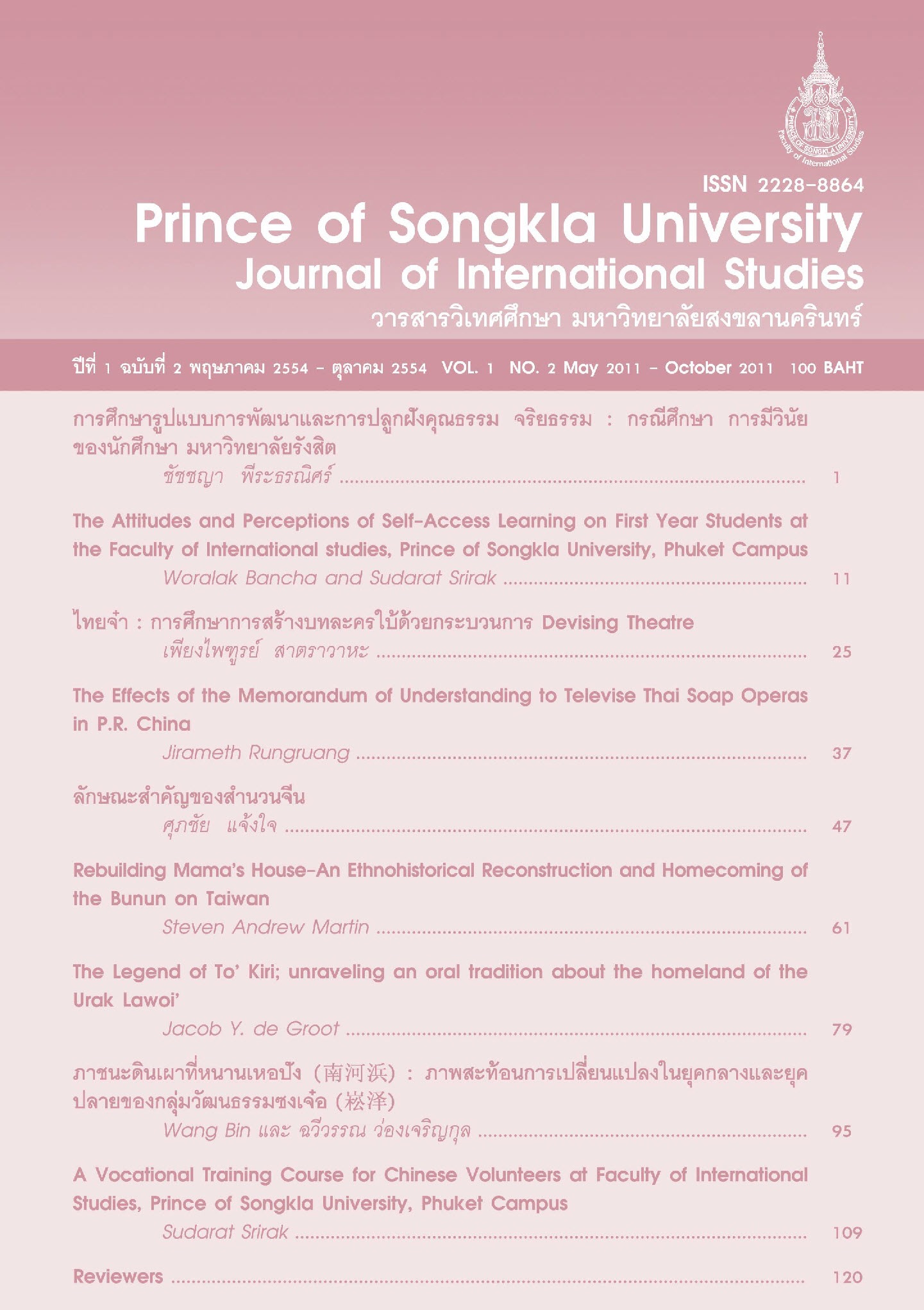The Study of the Ethics and Moral Development and Cultivation Model: Case of the Discipline for Rangsit University Students
Main Article Content
Abstract
This research studied the opinions of university executives, faculty members and students of Rangsit University towards discipline, dress, punctuality, and responsibility problems related to ethics and moral development. Questionnaires and in-depth interviews were used to collect data from three sample groups: 3 university executives, 302 faculty members and 385 students. According to the interviews, executives recommended issuing guidelines for students and making a policy in which top executives and faculty members cooperate in inculcating ethical and moral values. Teachers need to be good role models for students. Faculty members stated that some students dressed casually, didn t submit assignments on time, came to class late, missed classes, and talked in class. Faculty members had very high expectations but were only moderately satisfied with student discipline. The frequent discipline problems were improper dress, missing class, and coming to class late. On average students correctly answered 7 out of 9 questions regarding discipline (SD=1.89). Results revealed that 44.9 percent of samples believed that enforcement of rules and punishment should be used, while 39.7 percent of students believed that disciplining needed control measures. Ninety percent of samples agreed that students behaviors should be consistent with discipline guidelines. The researcher recommends a holistic approach to improve discipline problems and proposes the following suggestions: set up a university unit to support and promote morals and ethics practice on campus; and make a clear policy that integrates morals and ethics into university courses in every program.
Article Details
Statements and opinions expressed in articles herein are those of the authors and do not necessarily reflect the position of the editors or publisher.
Article, information, text, image, etc. which are published in Journal of International Studies, belong to Journal of International Studies. If anybody or any organization would like to use part or whole of them, they must receive written permission from Journal of International Studies before usage.
References
กรมสุขภาพจิต,กระทรวงสาธารณสุข. (2548). สถานการณ์เด็กและเยาวชน ภาพสะท้อนสังคมไทย - (ออนไลน์). เข้าถึงได้จาก hp.anamai.moph.go.th/. (วันที่ค้นข้อมูล : 3 กรกฎาคม 2553).
เครือข่ายสถาบันอุดมศึกษาเขตภาคกลาง เพื่อพัฒนาบัณฑิตอุดมคติ. (2551). แนวทางการปลูกฝังคุณธรรมจริยธรรมนักศึกษาบนเส้นทางกิจการนักศึกษา สํานักงานคณะกรรมการการอุดมศึกษา (อัดสําเนา),
จิรวัฒน์ จิรังกร (2551). ความรู้ปฏิบัติเพื่อพัฒนาบัณฑิตอุดมคติไทยแนวทางการพัฒนาวินัย
นักศึกษา สํานักงานคณะกรรมการการอุดมศึกษา (อัดสําเนา),
ชวลิต โอฬาพิริยกุล. (2547). รูปแบบการพัฒนาคุณธรรม จริยธรรม. (ออนไลน์). เข้าถึงได้จาก http://itd.htc.ac.th/st_it50/it5041/weblinkwork/wab%20krunaton/rooban.html.
(วันที่ค้นข้อมูล : 1 ตุลาคม 2547)
เชาว์ มณีวงศ์. (ม.ป.ป.). ความสําคัญของวินัย. (ออนไลน์). เข้าถึงได้จาก http://www.kroobannok.com, ? 2000-2020 Kroobannok.com. (วันที่ค้นข้อมูล : 17 ต.ค. 2552)
ทวิช จิตรสมบูรณ์. (2551), จริยธรรมองค์กรกับการพัฒนาบัณฑิตอุดมคติ, กรุงเทพมหานคร : ชวนการพิมพ์,
สถาบันวิจัย มหาวิทยาลัยกรุงเทพ. (2550), ความคิดเห็นต่อปัญหาการแต่งกายของนิสิตนักศึกษาในระดับอุดมศึกษา. (ออนไลน์), เข้าถึงได้จาก http://research.bu.ac.th/poll/result/poll365.php. (วันที่ค้นข้อมูล : 3 กรกฎาคม 2552


